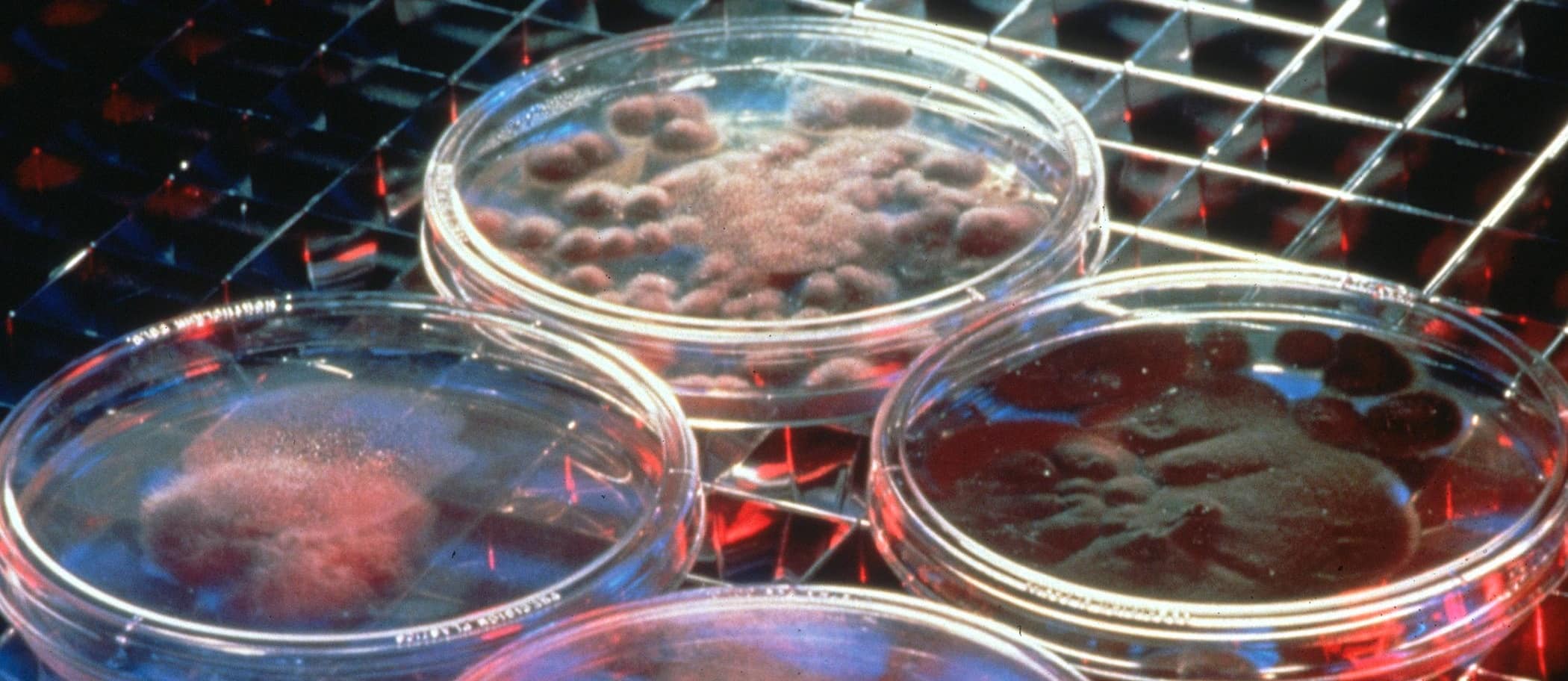When designing an antibiotic, we can’t create a drug that destroys DNA because that’s something that both humans and bacteria share in common. It would kill bacteria, but it might kill us, too. Instead, many antibiotics work by attacking bacterial cell walls, which is something bacteria have that we don’t.
Similarly, antifungals can attack the unique cell walls of fungus. Pesticides can work by attacking the special exoskeleton of insects. But fighting cancer is harder because cancer cells are our own cells. So fighting cancer comes down to trying to find and exploit differences between cancer cells and normal cells.
Forty years ago, a landmark paper was published showing for the first time that many human cancers have what’s called “absolute methionine dependency,” meaning that if we try to grow cells in a Petri dish without giving them the amino acid methionine, normal cells thrive, but without methionine, cancer cells die. Normal breast cells grow no matter what, with or without methionine, but cancer cells need that added methionine to grow.
What does cancer do with the methionine? Tumors use it to generate gaseous sulfur-containing compounds that, interestingly, can be detected by specially trained diagnostic dogs. There are mole-sniffing dogs that can pick out skin cancer. There are breath-sniffing dogs that can pick out people with lung cancer. Pee-sniffing dogs that can diagnose bladder cancer and–you guessed it–fart-sniffing dogs for colorectal cancer. Doctors can now bring their lab to the lab!
It gives a whole new meaning to the term “pet scan.” :)
Methionine dependency is not just present in cancer cell lines in a Petri dish. Fresh tumors taken from patients show that many cancers appear to have a biochemical defect that makes them dependent on methionine, including some tumors of the colon, breast, ovary, prostate, and skin. Pharmaceutical companies are fighting to be the first to come out with a drug that decreases methionine levels. But since methionine is sourced mainly from food, a better strategy may be to lower methionine levels by lowering methionine intake, eliminating high methionine foods to control cancer growth as well as improve our lifespan (see Methionine Restriction as a Life-Extension Strategy).
Here’s the thinking: smoking cessation, consumption of diets rich in plants, and other lifestyle measures can prevent the majority of cancers. Unfortunately, people don’t do them, and as a result hundreds of thousands of Americans develop metastatic cancer each year. Chemotherapy cures only a few types of metastatic cancer. Unfortunately, the vast majority of common metastatic cancers, such as breast, prostate, colon, and lung, are lethal. We therefore desperately need novel treatment strategies for metastatic cancer, and dietary methionine restriction may be one such strategy.
So, where is methionine found? In my video, Starving Cancer with Methionine Restriction, you can see a graph of foods with their respective methionine levels. Chicken and fish have the highest levels. Milk, red meat, and eggs have less, but if we really want to stick with lower methionine foods, fruits, nuts, veggies, grains, and beans are the best. In other words, “In humans, methionine restriction may be achieved using a predominately vegan diet.”
There are also compounds in animal products that may actually stimulate tumor growth. See, for example, How Tumors Use Meat to Grow: Xeno-Autoantibodies. Animal protein may also boost levels of the cancer-promoting hormone IGF-1 (The Answer to the Pritikin Puzzle). Combined, this could all help explain why plants and plant-based diets have been found effective in potentially reversing some cancer processes. See Cancer Reversal Through Diet?, Strawberries versus Esophageal Cancer, and Black Raspberries versus Oral Cancer.
So why isn’t every oncologist prescribing a low-methionine diet? One researcher notes that “Despite many promising preclinical and clinical studies in recent years, dietary methionine restriction and other dietary approaches to cancer treatment have not yet gained wide clinical application. Most clinicians and investigators are probably unfamiliar with nutritional approaches to cancer.” That’s an understatement! “Many others may consider amino acid restriction as an ‘old idea,’ since it has been examined for several decades. However, many good ideas remain latent for decades if not centuries before they prove valuable in the clinic….With the proper development, dietary methionine restriction, either alone or in combination with other treatments, may prove to have a major impact on patients with cancer.”
Why might the medical profession be so resistant to therapies proven to be effective? The Tomato Effect may be partially to blame.
In my video, Anti-Angiogenesis: Cutting Off Tumor Supply Lines, researchers come to the same plant-based conclusion from a different perspective, starving cancers of their blood supply.
-Michael Greger, M.D.
PS: If you haven’t yet, you can subscribe to my videos for free by clicking here and watch my full 2012 – 2015 presentations Uprooting the Leading Causes of Death, More than an Apple a Day, From Table to Able, and Food as Medicine.
